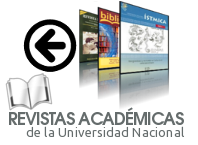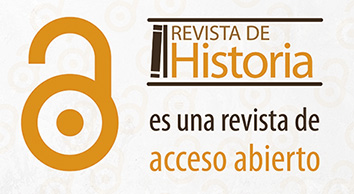Code of ethics and Malpractice Statement
Revista de Historia has its Editorial Board, Director, editors, and assistants. It works permanently in conjunction with the authors and peer reviewers to guarantee ethical practices during the editorial management process.
The publications of the Revista de Historia are governed by principles such as Open Access, precision, veracity, originality, and transparency of the scientific process of each article, respect for intellectual property, and editorial transparency and accuracy.
- Bad Practices, Biases, and Inadmissible Errors
- Modalities of plagiarism and citation manipulation. The Journal pre-filters manuscripts with the support of the Turnitin This tool offers a report of coincidences with other texts already published. Manual verification of all the detected coincidences is carried out; in those uncertain cases, the author will be asked to clarify the detected coincidence's status or correct it if possible. In case the number of coincidences does not comply with the manuscript's originality requirement, a paper can even be rejected.
- The following are some examples of coincidences that may present doubt: inadequate citation of secondary sources, incorrect attribution of citations, improper application of citation standards, subtraction or addition of words to a quote that leads to misinterpretation, excessive use of self-citation, and detection of repetitive or redundant patterns when citing that lead to suspicion.
- Direct and indirect plagiarism (copy and paste) occurs when an author takes, transcribes, duplicates and paraphrases, deliberately or unconsciously, parts or all of a specific work, appropriating and falsifying the authorship of it.
- Disrespect for others’ privacy occurs when informed consent or unauthorized use of a third party’s images is omitted.
- Remakes or redundant publications consist in using parts of works already published as if they were unpublished material.
- The inclusion of authors who have not participated in the research or the process of preparing the manuscript, or the exclusion of authors who have taken part in the research or process of preparing the article is a bad practice.
- Authorship and Contributions
- Submitting a “Letter to Grant Publication Rights” is required. In this letter, the authors attest the authorship of their manuscripts and authorize this journal to publish them if they pass the filters and phases of the editorial process. Thus, direct participants' omission in the elaboration of the manuscripts (ghost authors) or their unauthorized appearance (gift authors) is expected to be avoided.
- In case of doubts about authorship, applicants must explain the situation via e-mail. In addition, no withdrawal of authors will be made without a note of acceptance from the withdrawn person. When there are cases of a physical or material nature (e.g., health problems or death), the editorial team will make a decision according to the specificities of the particular case.
III. Appeals and Complaints
- Claims or appeals related to the rejection of submissions will be handled and resolved efficiently and without this implying a commitment to publication. This does not apply if the case refers to an infraction included in the first section, “Bad practices, biases, and inadmissible errors,” has been committed.
- So, the author must send a letter via e-mail explaining the situation in a clear, concise, and reasoned manner.
- In case of complaints due to forms of plagiarism, the Journal will apply its own detection mechanisms to verify the situation. If needed, it will resort to an external expert opinion and resolve according to the corresponding institutional, national, and international regulations.
- When the appeals are related to an arbitration result, the substantiated arguments presented by the authors will be evaluated as long as this code deems them admissible. In case of doubt, new arbitration will be conducted to decide the result without the possibility of a second appeal.
- Complaints related to people's conduct of the Journal's editorial or technical team will be handled by the other editorial team members. Besides, if needed, the legal mechanisms established by the Universidad Nacional, in general, will be used.
- Conflicts of Interest
- The Journal promotes the use of the declaration of conflicts of interest as a transparency tool. The authors must identify and explain personal conditions, employment relationships, financing, or support with resources by means of a letter via e-mail.
- Authors, reviewers, and members of the editorial and technical team of the Journal must indicate any conflict of interest that may affect the effectiveness or objectivity of tasks they carry out to publish. Authors will do so when submitting their manuscripts. Reviewers must inform, in a timely manner, the Editorial Board upon receipt of the request for arbitration or at the moment in which they identify any element that may influence the result of the review so that they can be replaced.
- In case a conflict of interest is detected in an article already published, the situation will be addressed under the third section on “Appeals and complaints.”
For more information on ethics in scientific research, you can consult The Best Practice Guidelines for Journal Editors and the International Standards for Editors and Authors, established by the Committee on Publishing Ethics (COPE).











_2.23_.09_p_._m_._.png)
_2.35_.17_p_._m_._.png)

